We take a look at the common causes of period weight gain, how much is normal, and how you can minimize these effects during that time of the month.
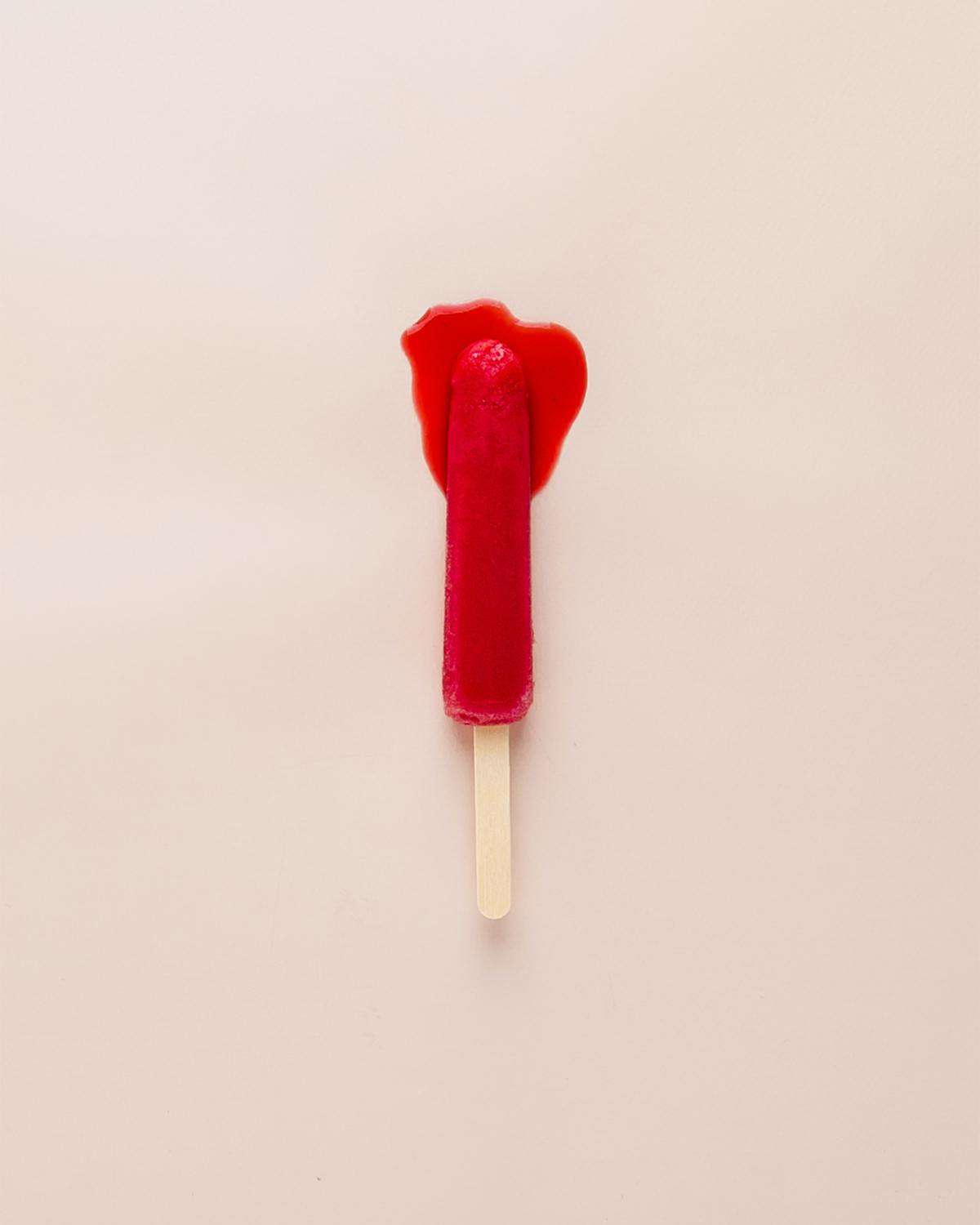
Folks, you don’t need me to tell you that getting your period is a royal pain – literally. In the days leading up to your period not only are you feeling all the feels, but you’re so exhausted that no amount of sleep is enough, your appetite is fluctuating like crazy, you’re crampy and bloated, and oh – is that a breakout I see? Fan-freaking-tastic.
It’s hard to believe that us menstruating people have to experience this roller coaster of physical and emotional symptoms on a monthly basis. But alas – we do it and we carry on with our day-to-day lives like it ain’t no thang.
Now, I am sure that many of you reading this are no stranger to the symptoms I’ve just described, and it is by no means an exhaustive list. As a result of the bloating and food cravings that ensue during this time, one of the most common concerns that I get asked about when it comes to menstruation is period weight gain. While the waist band on your pants may feel tighter in around that time of the month – do you actually gain weight while on your period? And if so, how much?
So, we breakdown what is really going on with the extra weight on board during the time of the month and how you can minimize the discomfort.
IS PERIOD WEIGHT GAIN NORMAL?
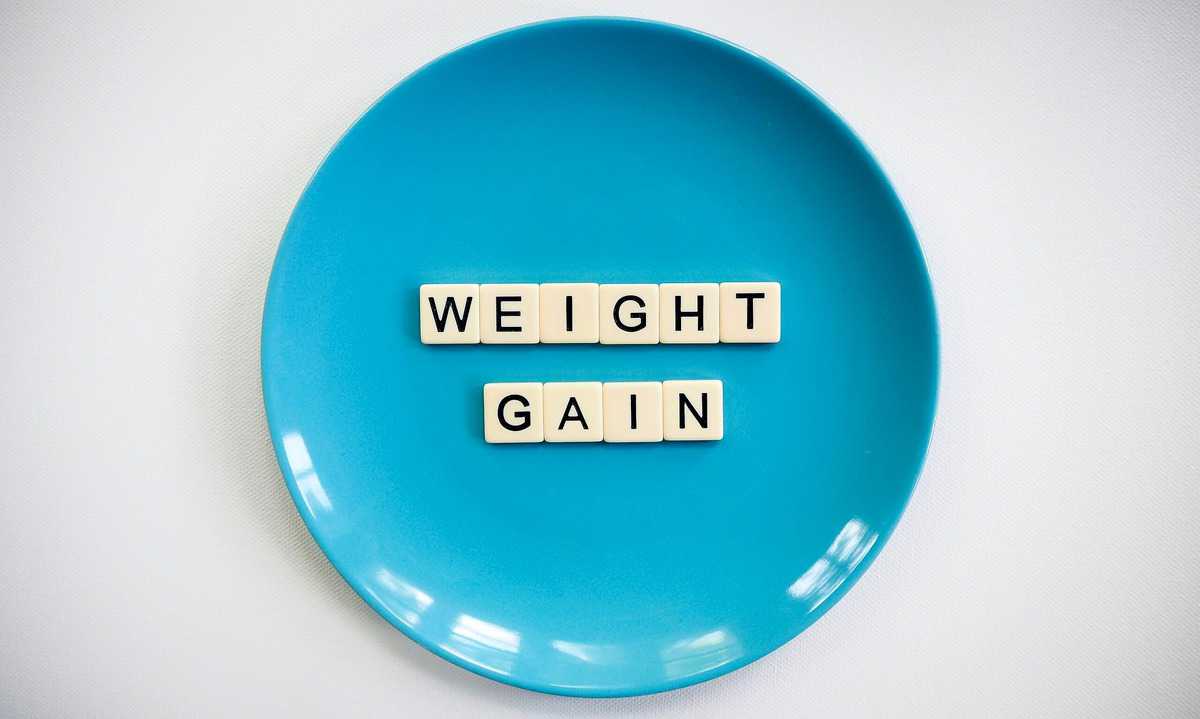
I want to start off by saying that period weight gain is 100% normal. In fact, it is also perfectly normal for your weight to fluctuate on a daily basis, regardless of whether or not it’s your time of the month. But I totally get that the bloating and feeling of weight gain around the time of your period can feel especially prominent and uncomfortable.
While everybody is different, on average, most people gain approximately 3-5 pounds during their period which should typically go away about a few days after your period starts. This is because you’re unlikely to actually gain any body fat during your period (assuming that you don’t experience any drastic changes in your eating and activity level). Instead, the temporary period weight gain is attributed to the natural hormonal fluctuations and PMS symptoms that can leave you feeling bloaty and uncomfortable.
With that said, let’s briefly break down the culprit behind the weight fluctuations we experience during our period – aka our lovely hormones.
HORMONAL FLUCTUATIONS
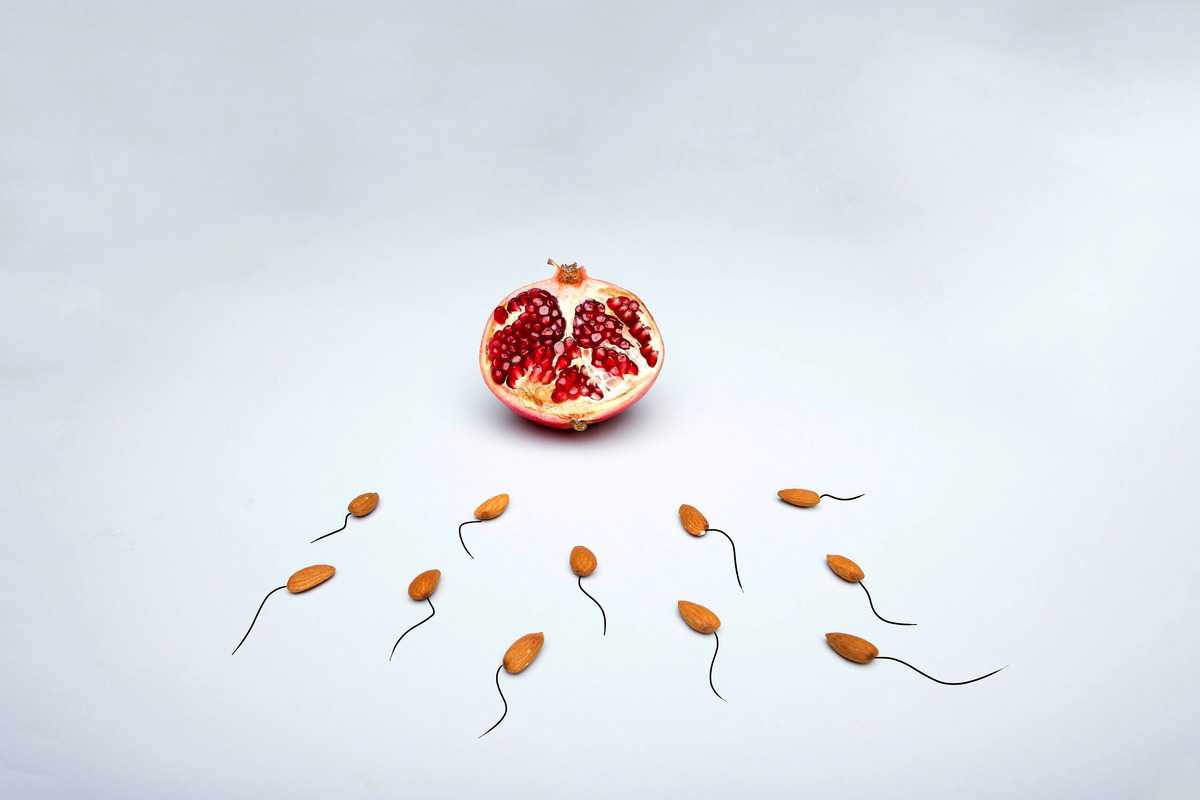
Throughout our menstrual cycle, our hormones are fluctuating like cray cray. This is all in an effort to prepare our womb for fertilization. But unless you are actively trying to conceive, rather than welcoming a sweet little babe into the world, we welcome something a little less cute and a little messier into our underpants. If you need a bit of a refresher from sex-ed class from many moons ago, here is a brief summary of what goes down during the four phases of the menstrual cycle.
- Menstruation – involves the shedding of the uterine lining in the absence of pregnancy (aka our dear aunt flow, the crimson wave, whatever you wanna call it).
- Follicular phase – this phase overlaps with menstruation and triggers the ovaries to begin preparing an egg for ovulation.
- Ovulation –the egg is released from the ovary and is ready for fertilization.
- Luteal phase – if an egg is not fertilized, this phase initiates the deterioration of the corpus luteum and prepares for shedding of the uterine lining during menstruation.
When it comes to period weight gain, specifically, the key hormonal players are – progesterone and estrogen. These two hormones fluctuate the most during the luteal and follicular phase, which is the period of time when we tend to feel the most uncomfortable. Let’s take a closer look, shall we?
Luteal phase – progesterone & estrogen peak and drop
The luteal phase occurs after ovulation and before the follicular phase/menstruation and typically lasts for 12-14 days. Progesterone is the dominant hormone in this phase and will increase and peak around halfway through the luteal phase. Estrogen will also increase, albeit to a lesser degree than progesterone.
The increase in progesterone helps to thicken the uterine wall in preparation for the implantation of a fertilized egg. However, if an egg is not fertilized, progesterone and estrogen levels start to decline which will then trigger menstruation. The fluctuation in progesterone is associated with the common symptoms of PMS that most people tend to experience such as mood changes, breast tenderness, headaches, bloating, thirst and appetite changes, acne etc.
Follicular phase – low estrogen and progesterone
The follicular phase begins from the first day of menstruation until the beginning of ovulation and lasts for an average of 16 days. Estrogen is the dominant hormone here, and during the early stages of the follicular phase progesterone and estrogen levels are at an all-time low. But as the ovaries begin to prepare an egg for fertilization, estrogen levels start to rise which peaks just before ovulation. This is usually around the time nearing the end of our period when we start to feel better and back to normal.
COMMON CAUSES OF PERIOD WEIGHT GAIN
So now that we know the basics of how our hormones fluctuate around our periods, what the heck does any of this have to do with period weight gain anyhow?
As mentioned, while it is unlikely that you will gain body fat during your period, it is common for most menstruating people to experience temporary period weight gain. This is because the fluctuations in progesterone and estrogen during the luteal and follicular phase increase the likelihood of experiencing uncomfortable physical symptoms such as water retention, constipation, and increased appetite – all of which can result in modest period weight gain.
Water Retention
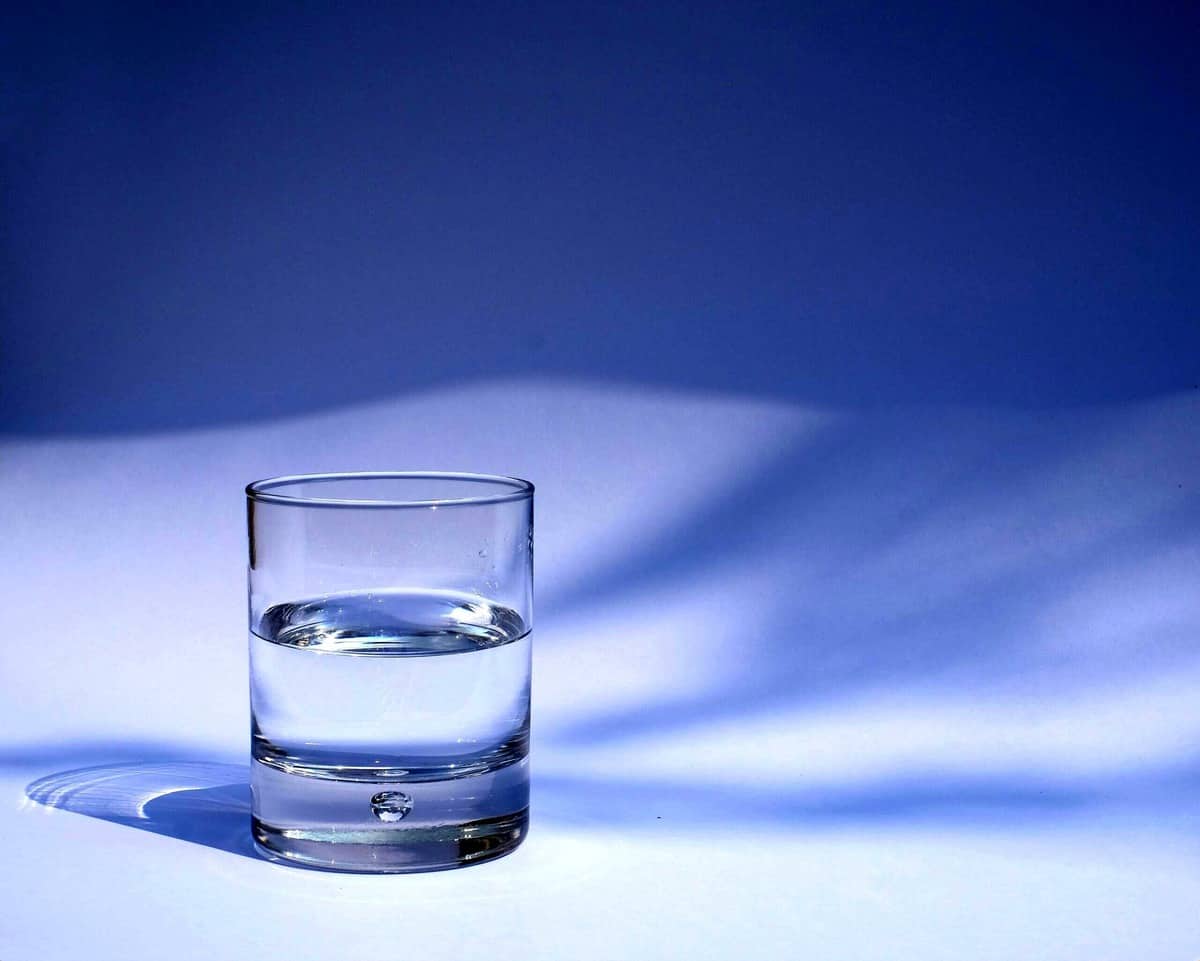
In the words of Cady Heron from Mean Girls – “It’s just water weight”. Water retention is one of the most common symptoms of PMS and affects 92% of individuals who menstruate. In fact, water retention can cause weight fluctuations by as much as 2-4 pounds. This is because progesterone and estrogen are involved in fluid regulation. As a result, the hormonal fluctuations during the luteal and follicular phase causes our bodies tissues to accumulate more water. This results in swelling and puffiness in the breasts, stomach, face, and extremities.
In addition, progesterone is also involved in the activation of aldosterone which causes the kidneys to retain water and salt. As a result, aldosterone levels increase during the luteal phase which also contributes to water retention. So even though water retention can give the appearance of weight gain, one 2014 study confirmed that individuals experiencing water retention during their period, did not experience significant weight changes throughout the rest of their menstrual cycle.
In other words, water retention does not have a significant impact on overall weight. So, keep in mind that any water retention or swelling that you experience is likely to be more intense during the early days of your period but should quickly decrease afterwards.
Digestive Stress
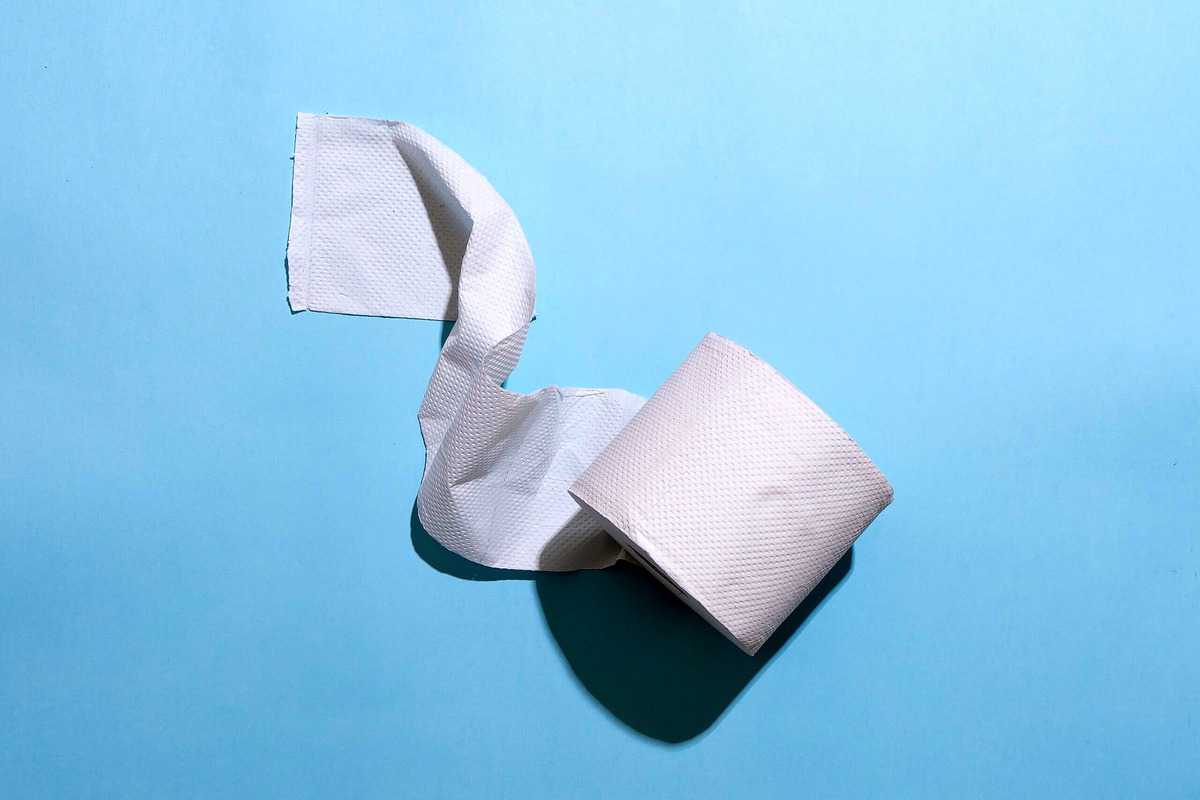
You know those days leading up to your period when you can’t really remember the last time you visited the bathroom to take a #2? Yeah, we have progesterone to thank for that.
The increase in progesterone about a week before the arrival of your period can result in “prolonged transit time”. In other words, progesterone slows down the rate of digestion which can leave you feeling a wee bit constipated. Feeling backed up around the time of your period is very common among people who menstruate, with one 2014 survey reporting that 73% of participants experienced GI symptoms such as gas and constipation before and during their period.
With that said, the resulting discomfort of constipation can make you feel like you’ve gained a few extra pounds leading up to your time of the month. However, this should quickly resolve itself once progesterone levels decline and your bowel movements become regular once again (Hellooo period poops, am I right?!).
Food Cravings & Metabolic Rate

If you tend to feel hungrier than usual during the days leading up to your period, not to worry – there is actually a scientific explanation for that. Progesterone is an appetite stimulant, which means that you may experience increased hunger right before your period when progesterone is at its peak (aka the luteal phase).
On the other hand, estrogen suppresses appetite which means that your baseline hunger levels should return back to normal a few days after your period starts and estrogen levels start to increase (aka the follicular phase).
It’s also worth noting that progesterone is not the only factor influencing our revved-up appetites. Serotonin, an important neurotransmitter that controls our mood and appetite, is regulated by and has a direct relationship with estrogen. Meaning, that when estrogen drops before and during the early days of our periods, so too does serotonin. This results in not only an increase in appetite, but it is also to blame for our crappy moods. With that said, research also suggests that the drop in serotonin can increase food cravings, specifically for carbohydrate-rich foods. This is because when you’re craving carbs, you’re actually craving foods that increase serotonin production.
One theory behind the serotonin-boosting effects of carbohydrates is that it acts as a shuttle for tryptophan to get into the brain. Tryptophan is an amino acid that is directly involved in the production of serotonin. Therefore, the more tryptophan available in the brain the more serotonin we are able to produce. So even though carbs are not directly involved in serotonin production, they provide an important step to increase the circulation of tryptophan.
Considering the appetite stimulating effects of fluctuating progesterone and serotonin, it’s no surprise that studies have shown that menstruating people tend to eat more calories during the luteal phase compared to the follicular phase. It is during this phase that people also tend to experience increased food cravings for sweet and salty foods (which may also further exacerbate water retention).
However, despite the increase in appetite during the luteal phase, it is unlikely that increased food intake will necessarily result in permanent weight gain. This is because the increased progesterone during the luteal phase can actually cause a modest increase in basal metabolic rate by up to 12% or more. Research has confirmed that even though caloric intake may increase before the start of your period, there tends to be a compensating decrease as you period begins to wind down (aka the end of the follicular phase). In other words, it is unlikely that any increase in food intake before your period will result in permanent weight gain.
HOW TO PREVENT PERIOD WEIGHT GAIN
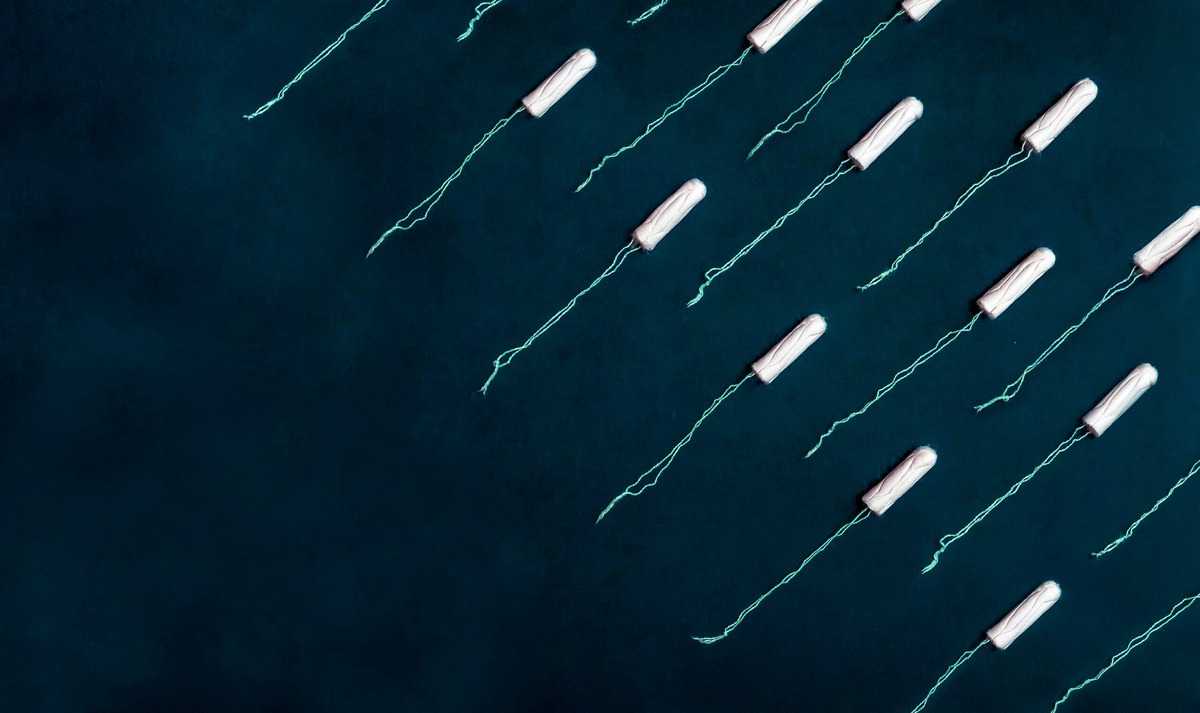
Our hormones are gonna hormone the way they wanna hormone. Which is my obnoxious way of saying that there’s not much we can really do to prevent the modest weight gain we experience during our periods. However, we can do our best to help minimize their effects and ward off some of the discomfort that ensues. Here are some of my top tips to help minimize period weight gain.
Drink More Water
Drinking more water during the early days of your period and staying hydrated may help to not only reduce water retention, but it can also help to relieve constipation, as well. To ensure you stay optimally hydrated, aim to drink roughly 6-8 cups of water daily. However, this recommendation is highly individualized and may vary depending on your activity level and climate.
A good rule of thumb to ensuring you are well hydrated is to check the colour of your urine. If you see a clear to pale yellow colour, that’s a good indication that you are well hydrated and drinking enough water. It would also be a good idea to avoid carbonated beverages during this time as it can increase bloating and gas.
Go Easy on The Salt
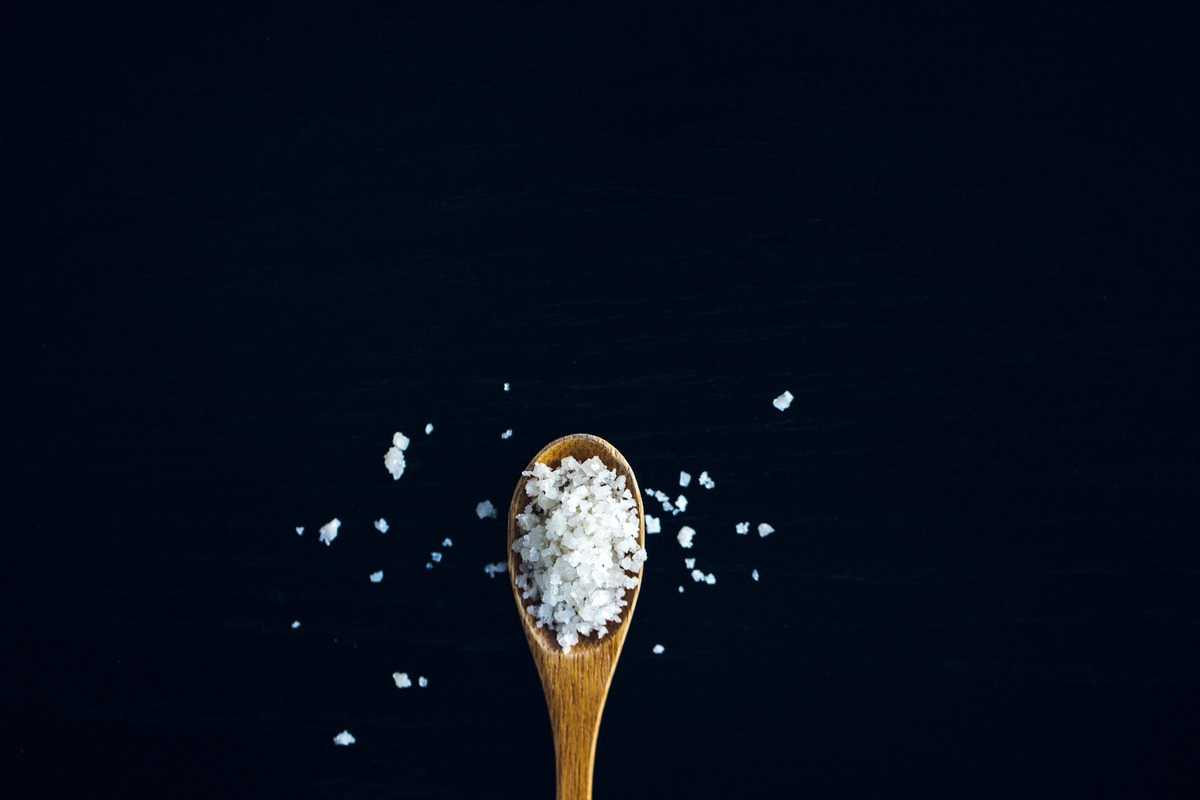
While it is totally normal to crave salty carbohydrate-rich foods before around your period, increased salt intake may easily exacerbate already existing water retention. This is because the sodium in salt binds to water in the body – meaning that increased salt intake leads to increased water retention.
With that said, try to minimize consumption of salty foods, particularly highly processed foods which tend to have a high sodium content. When looking at food labels, choose foods with less than 15% daily value of sodium per serving.
If you do happen to have a high sodium meal, no need to stress! You can always balance things out with water rich foods (i.e. cucumber, tomatoes, citrus foods) as well as foods that are rich in potassium as this will help to flush out excess sodium from the body. Some excellent sources of potassium include potatoes, beans, avocado, bananas, yogurt, and dark leafy greens.
Boost Your Magnesium Intake
One study found that taking 250 mg of magnesium can help to reduce period water retention and bloating. In general, most foods that contain dietary fibre also contain magnesium. But to get the most bang for your buck during your time of the month, the most abundant sources of magnesium include nuts, seeds, leafy greens, and whole grains.
To give you an example, a magnesium rich meal that provides more than 250 mg of magnesium would look like:
- 2 tablespoons of peanut butter (40mg of Magnesium)
- 2 slices of whole wheat toast (46 mg of Magnesium)
- 1 banana (32 mg of Magnesium)
- 2 tbsp pumpkin seeds (155 mg of Magnesium)
Move Your Body
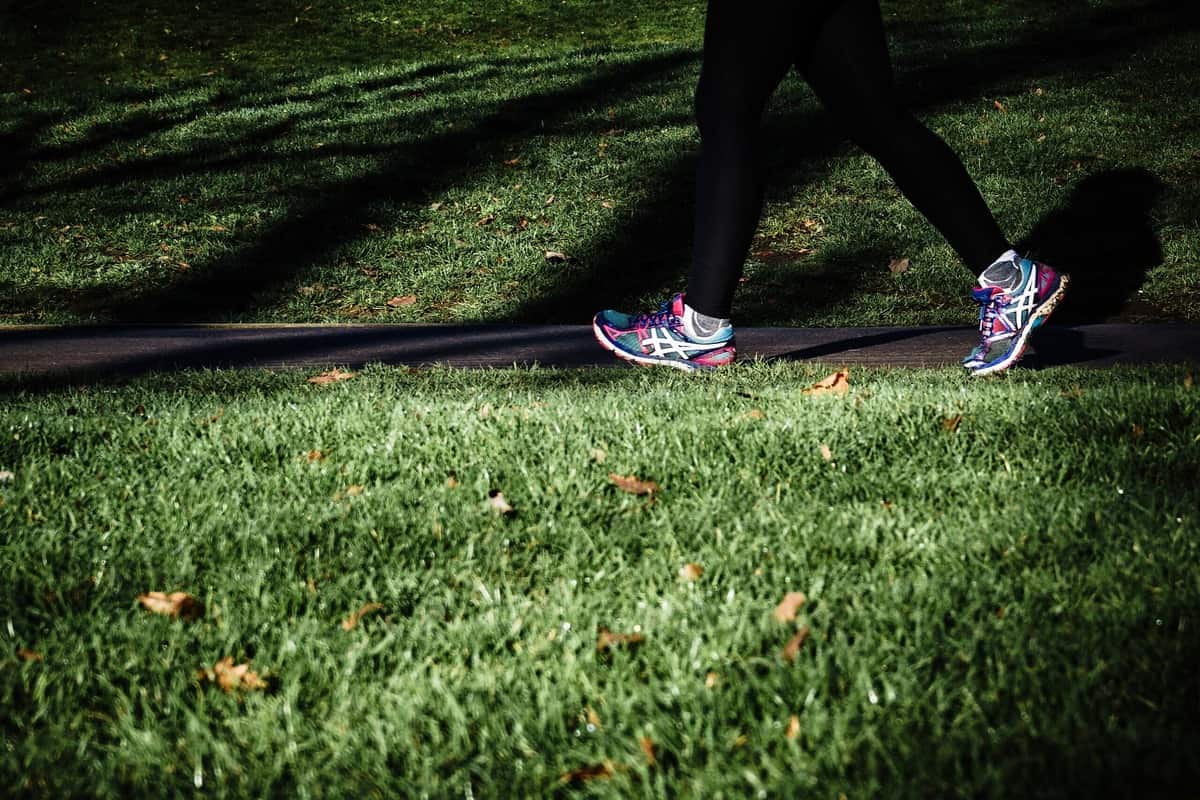
I know I know – the last thing you probably want to do when your period comes knocking at your door is get out of the comfort of your warm and cozy bed, much less go for a run. But trust me, some gentle movement during this time will certainly do your body good and help boost your mood!
A light walk or gentle stretching (whatever you can muster) can help to reduce fluid buildup and improve symptoms of constipation. A bonus perk of gentle movement during your period, is the release of endorphins can also help to relieve painful cramps. It’s a win-win!
Fibre is Your Friend
In addition to upping your water intake, making sure you’re getting enough dietary fibre is essential for keeping you regular and may help to ward off the pre-period constipation blues. The general fibre recommendation that you should aim for (regardless of that time of the month) is 25 grams/day for women and 38 grams/day for men. Unfortunately, on average, most people consume about half of their fibre recommendation. To up your fibre intake, aim to consume more fruit, vegetables, whole grains, legumes, nuts and seeds.
But if you really want to up the ante to counteract the constipating effects of progesterone, you can also aim to incorporate more psyllium fibre into your diet. Psyllium is a natural laxative that has been shown to promote overall digestive health, including constipation relief. In fact, according to a 2020 review, psyllium is 3.4 times more effective than wheat bran in the treatment of constipation. You can obtain psyllium fibre in supplemental form or in high-fibre cereals such as my personal fav, All Bran Buds. Adding just a 1/3 of a cup of All Bran Buds to your yogurt provides a whopping 11 grams of fibre (aka 44% of your daily fibre recommendation).
Get Your Carb Fix
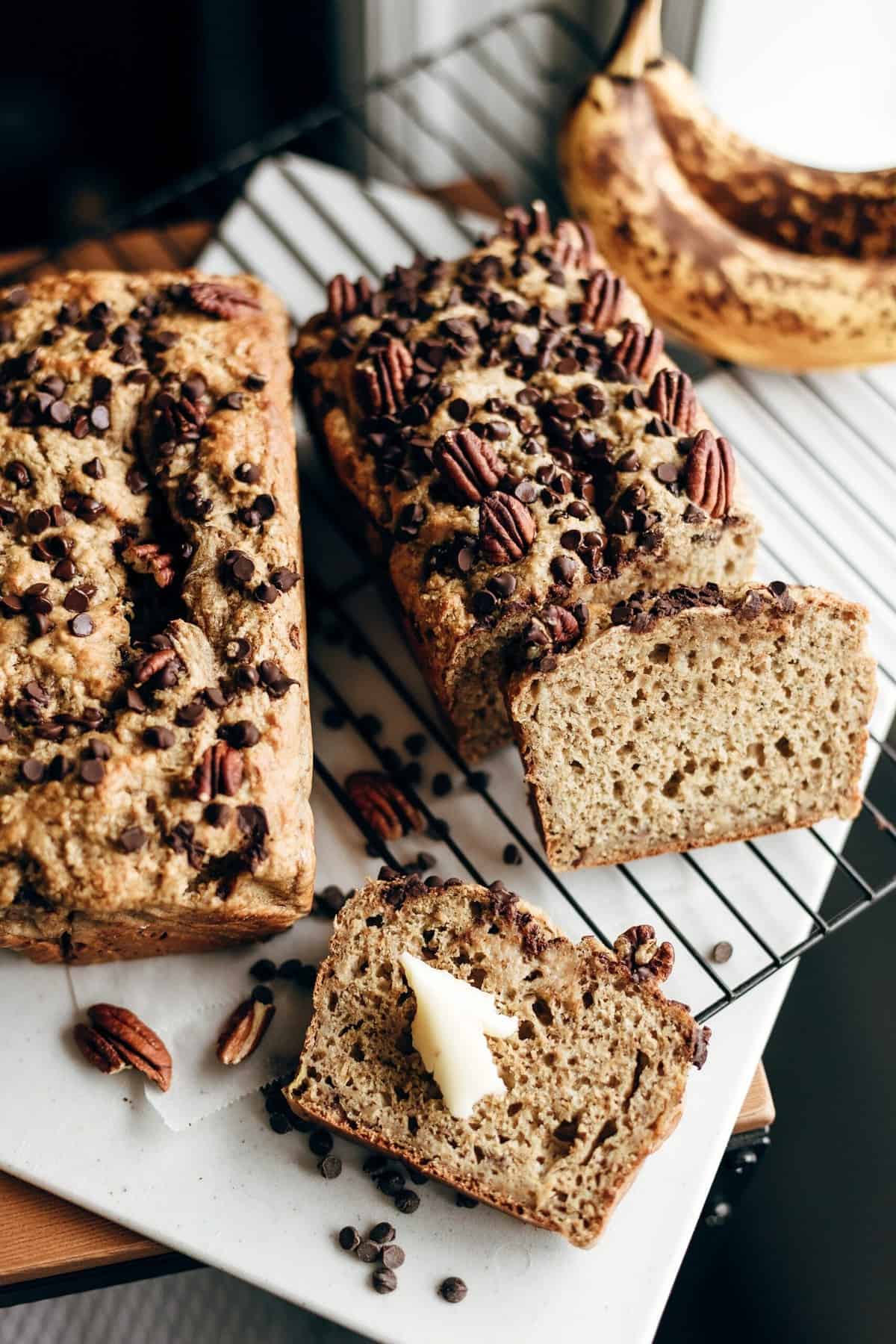
Complex carbs that is. We already know that the time of the month will have us craving all the carbs as our appetites get revved up and our cravings make themselves known. While you may be more inclined towards refined carbs during this time, make sure you are giving equal importance to complex carbs, as well.
Complex carbs such as whole grains, legumes, fruits, and vegetables will not only help to keep you fuller for longer but will also help to keep your blood sugar levels even throughout the day. This may help with the overall sluggishness and lack of energy we tend to experience on our periods.
In addition, we also know that eating carbohydrates helps to facilitate serotonin production which helps to boost mood and regulate appetite. Aiming to consume more fruits and veggies during our periods may also help to relieve water retention, especially those with high water content that are also potassium-rich. This includes foods such as cantaloupe, oranges, tomatoes, and grapefruit.
Be Gentle With Yourself
Most importantly, my number one piece of advice is this – be kind to yourself. At the end of the day, it’s really no biggie for our weight to fluctuate during this time of the month and it is a perfectly normal part of a healthy menstrual cycle. It is also certainly not a reflection of your worth or even your behaviours.
In addition, if you are on a weight loss journey, gaining a few lbs during your period is not an indication that you “failed” or that you need to restrict food or exercise more. So listen to your body through these hormonal shifts, give it a little extra love, and don’t let the extra water weight on board cramp your style. This is a monthly normal routine, so put on your comfy pants and just know your skinny jeans will fit better next week!
BOTTOM LINE
At the end of the day, gaining a modest amount of weight during our time of the month is perfectly normal and temporary. Ultimately, our hormones are gonna do their thing and we have no choice but to let them. But even though we can’t really do anything to completely prevent the uncomfortable side-effects of our fluctuating hormones, through simple lifestyle changes we can help to relieve the discomfort that comes from temporary water retention and constipation.
Written by: Giselle Segovia RD MHSc
More Blog Posts You Might Like
- Your Menstrual Cycle Diet: What to Eat on Your Period
- Period Talk: What to Do When You’ve Lost Your Period
- Does Birth Control Make You Gain Weight?

Abbey Sharp is a Registered Dietitian (RD), regulated by the Ontario College of Dietitians. She is a mom, YouTuber, Blogger, award winning cookbook author, media coach specializing in food and nutrition influencers, and a frequent contributor to national publications like Healthline and on national broadcast TV shows.
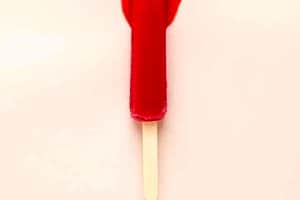


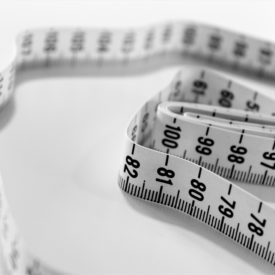

Rehoboth says
Awesome post
H says
Thank you for the article Abbey. I felt like a useless sack of potatoes and I definitely feel better after reading this. Love the humour.
H.
Jen says
I’m going to try these. I would be happy to just have less of bloating and constipation. I tend to “gain” 2-6kg of weight before my period.
Also that swelling is the devil. I need to have separate period bras that are a bit bigger then my normal ones. That swelling, aching and pain is no joke.
Abbey Sharp says
I totally know how you feel! Hopefully these tips can help you out.